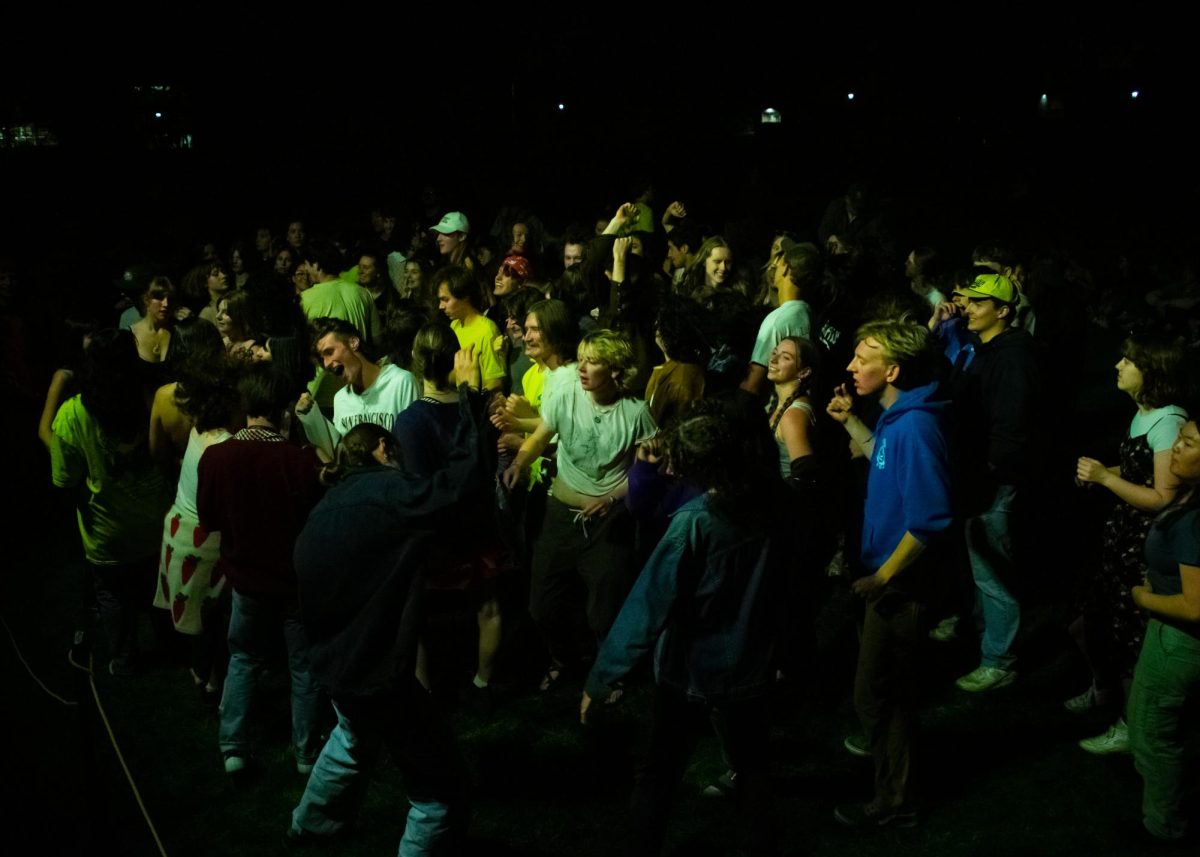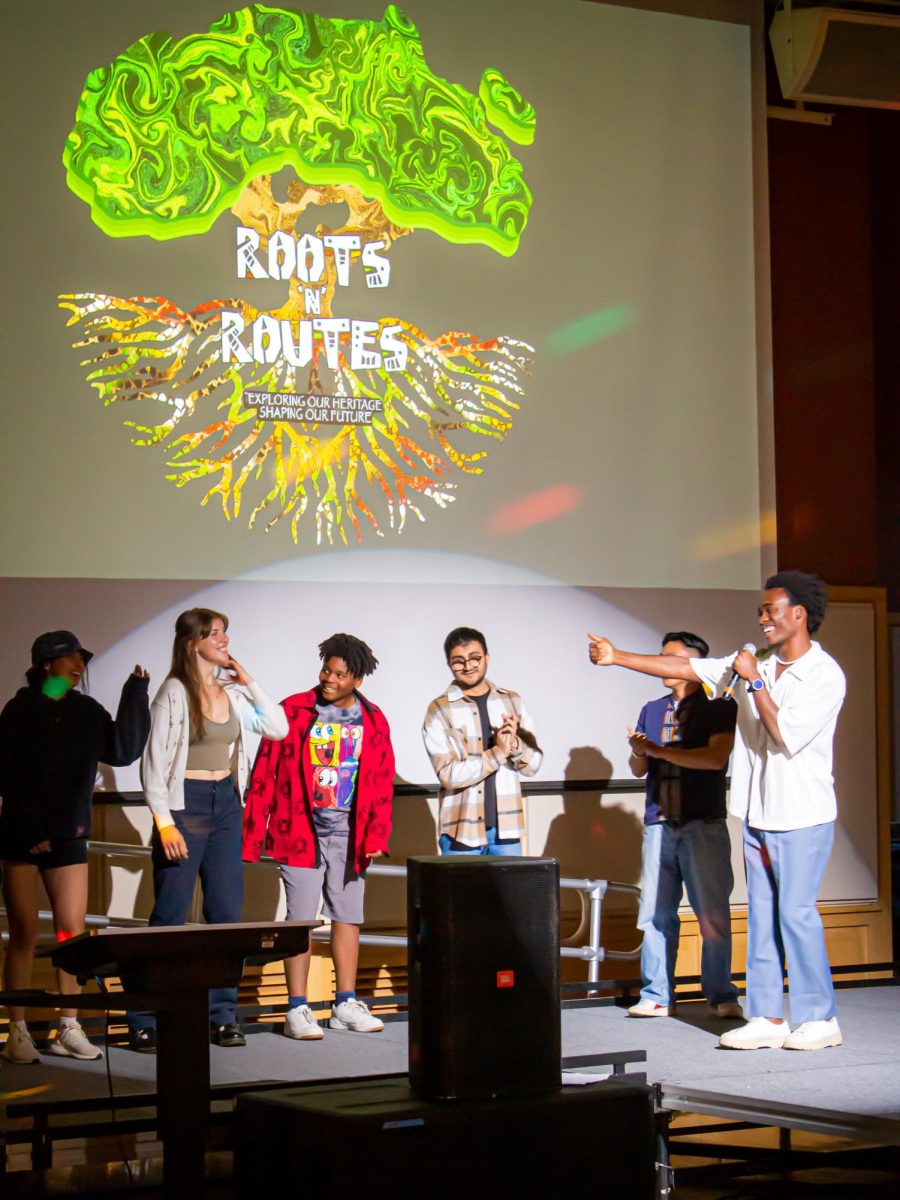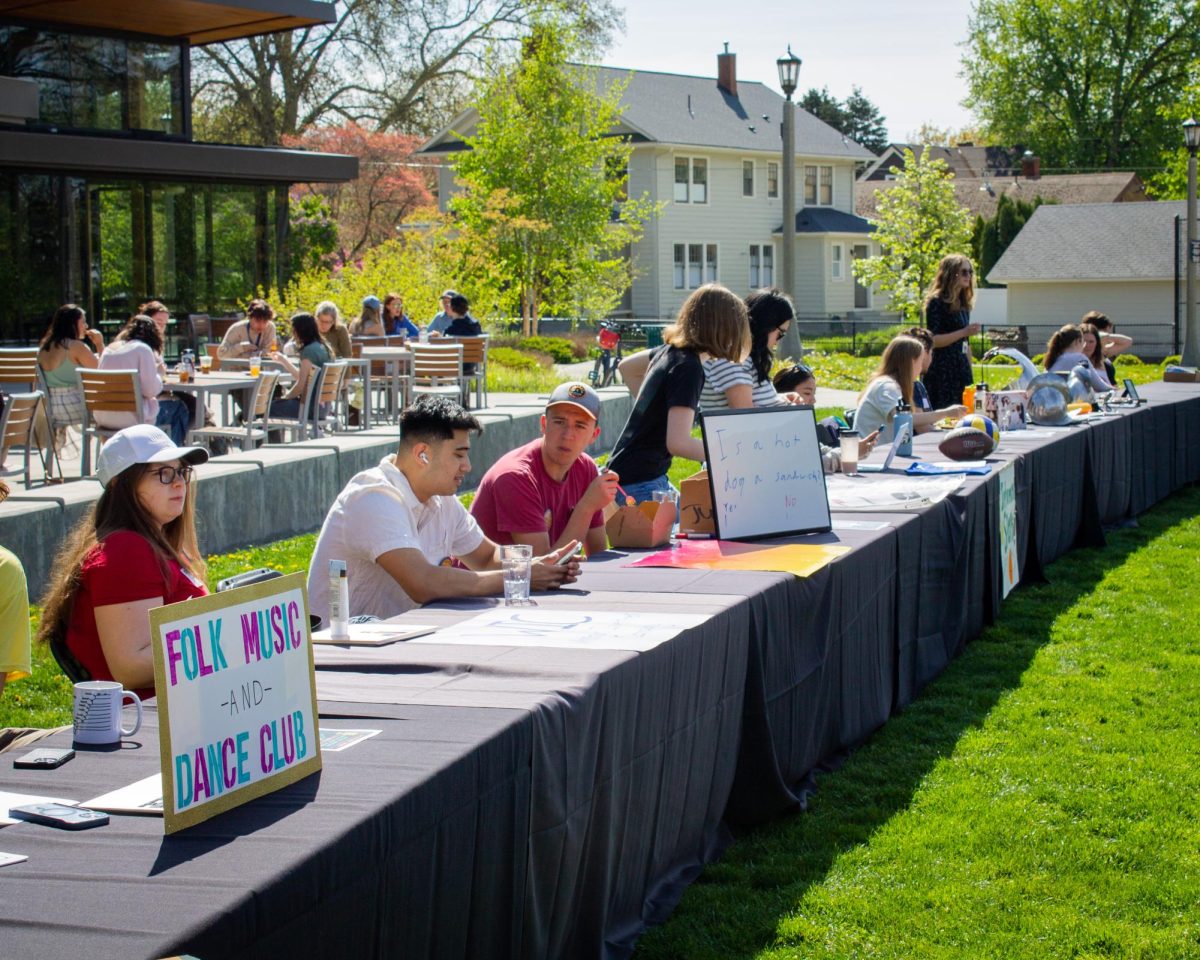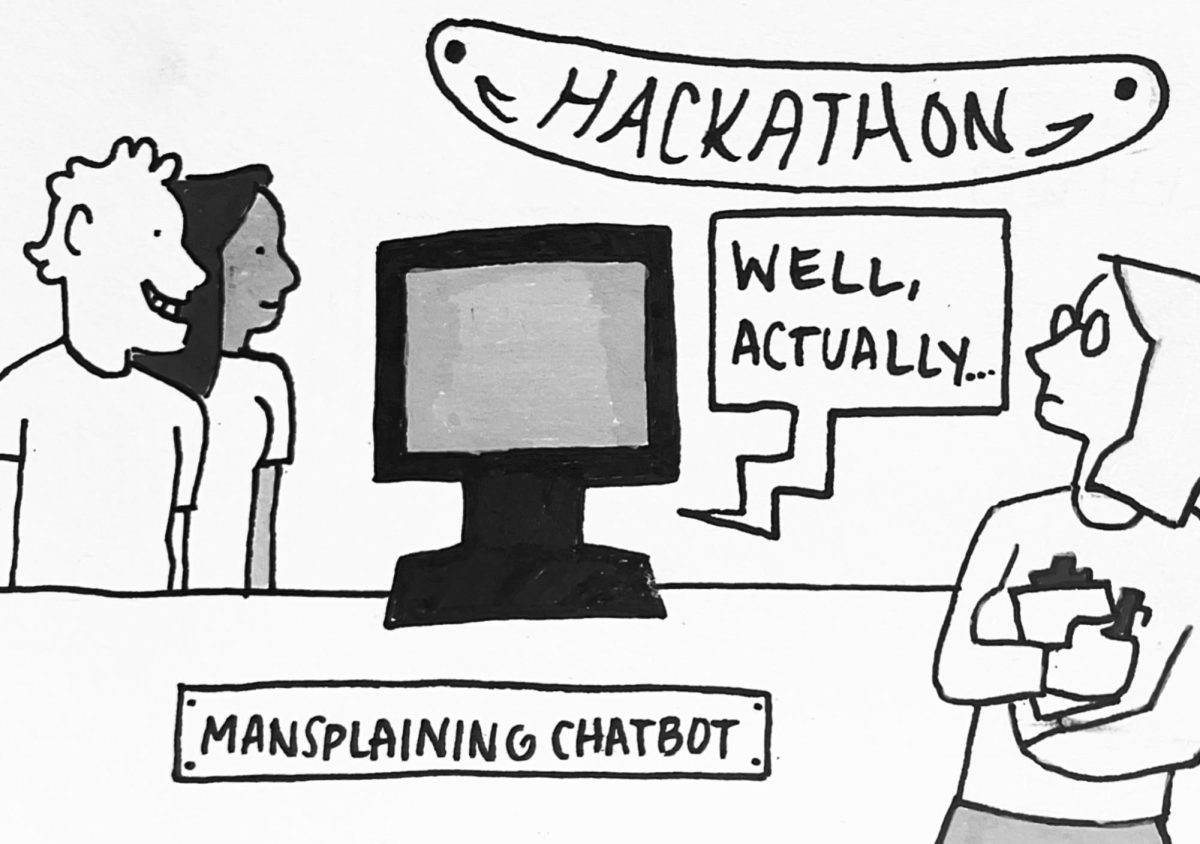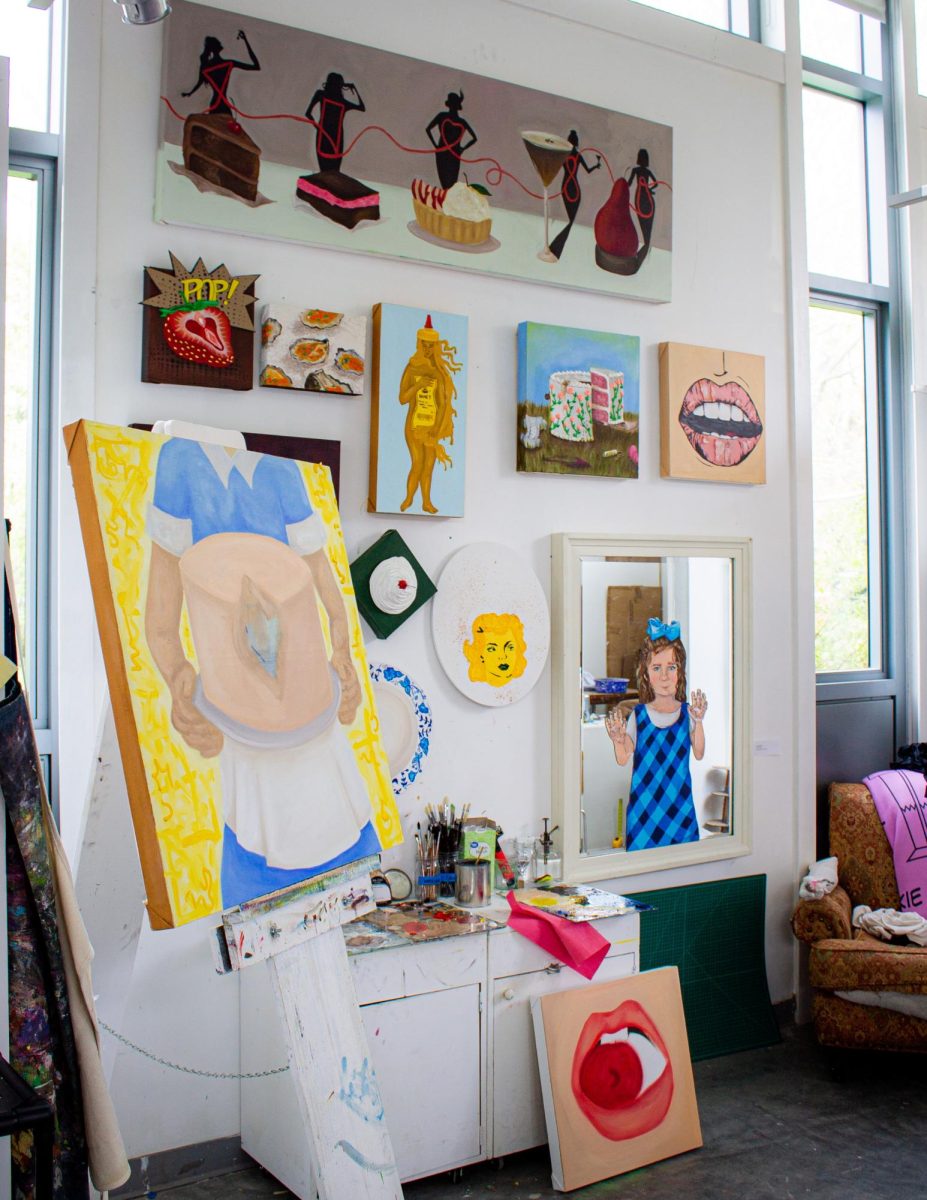On Oct. 30, the Whitman College and Pacific Northwest Archives displayed photographs, newspaper clippings and even printed out emails as they opened their doors to students and the public for a curated event. Students were greeted with a glitter-bound scrapbook detailing a local choral group, and Whitties filed into the classroom alongside locals with interests in public records.
The archives, which have not hosted public events like this one in recent years, were abuzz with giggles as community-members read through Bigfoot and alien sightings, an article about the Roo Rat Society and watch an early color video of daily life in the Walla Walla Valley. For Northwest Archives workers like Archival Assistant West Bales ’22, the bustle and hubbub were a welcome sound in the library’s often silent first-floor.
“We want the image of the archives to be more open and more welcoming, more friendly. It doesn’t have to be like for a class or an assignment, that you can kind of come here and discover what we have, even if that is just something like, ‘I heard [the archives] had this really old book, I want to see it,’ we’re a space for that too,” Bales said.
For Bales and other archivists, opening up the archives was a way to share interesting facts about the community and a way to combat anxiety that students might feel when approaching the basement doors.
“[The archival staff] were talking a lot about wanting to do more outreach that would make the archives more like friendly to the campus. We talk a lot about library anxiety of like, people are nervous to come in and use the space, and they don’t know what to do. But archives anxiety is even worse than that, usually, because it feels extra serious. So, we really wanted to break down that barrier,” Bales said.
Senior Genevieve Vogel has worked as a student assistant in the archives for two years. Although she is often found in the archives, the event let her view the space in a new light.
“I loved how talkative and social the Archives After Hours event was. I don’t think people often see the archives as a lively place, but this event allowed me to socialize with lots of people by simply pointing out things we thought were cool or intriguing and discussing them,” Vogel said.
Like Bales, Vogel voiced an interest in the intersection between sources that could be both entertaining and academic.
“There was laughing and silliness as well as questions and educational conversation,” Vogel said.
For both Vogel and the archivists on staff, the Archives After Hours event gave students room to enjoy sources like emailed images of alleged Bigfoot prints in the Blue Mountains while others discussed local history, swapping stories with one another as they wandered through the room.
For Aidan Wiggins, the atmosphere of the event was part of its allure.
“It was nice interacting with everyone, either over our amazement, or our curiosity and interest in the selections. I was surprised by the accessibility of the pieces, and the ability to view rarer assets, like a Nobel Prize, in open air,” Wiggins said.
The event allowed both students to access the archives in a relaxed, open setting — a completely new experience for some, like Wiggins, who had never been to the archives before.
“I honestly haven’t interacted with the archives before, it was my first time down there. I [understood] the archives as existing and doing important work, but I have never had the privilege to interact as none of my classes have engaged with it,” Wiggins said.
Experiencing the event as a source of interest and education was supported by Bales, who hoped the event would show the range and uses for the archival collection.
“We always describe the collection as being a teaching collection. We have these materials for people to interact with. So even if [that interaction] is a little more lighthearted — it means that someone’s seeing it, someone’s using it and that means that the preservation is valuable,” Bales said.
As archivists plan for more events in the future, they hope to raise awareness of how students can engage with the archives as well as combat feelings of intimidation or inaccessibility associated with Penrose’s basement. At the same time, however, events like this one have allowed the archives to engage with entertaining and valuable discourse about local history and preservation.





